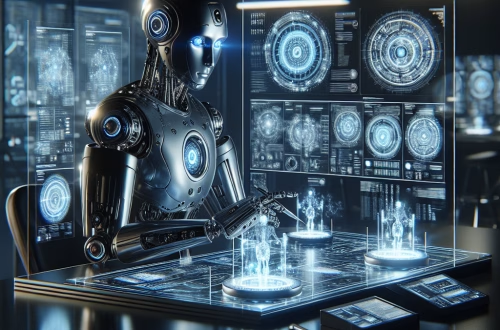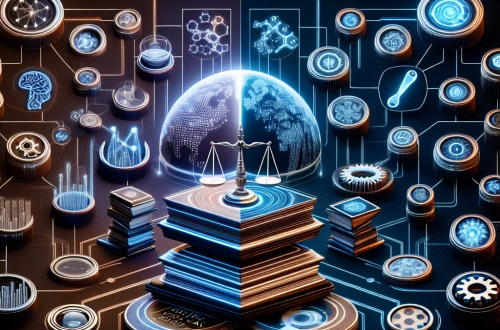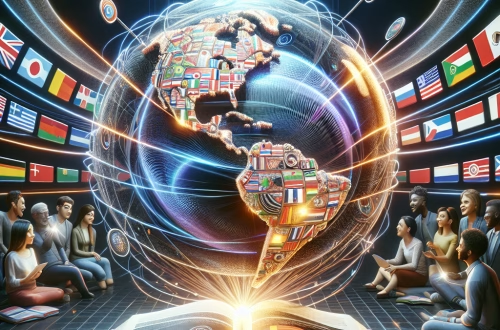OpenAI vs Anthropic vs Google AI Comparison
Summary:
This article compares three major AI models—OpenAI’s ChatGPT, Anthropic’s Claude, and Google’s Gemini (formerly Bard)—highlighting their unique strengths, applications, and limitations. OpenAI excels in general-purpose AI with strong natural language capabilities, Anthropic focuses on ethical alignment and safety, while Google AI leverages vast data integration from its ecosystem. Understanding these differences is crucial for businesses, developers, and AI enthusiasts selecting models based on performance, cost, and use-case fit. Each represents a distinct approach to AI deployment, shaping industry standards.
What This Means for You:
- Choosing the Right AI Model: OpenAI’s ChatGPT is ideal for creative tasks and coding, while Anthropic’s Claude is better for risk-sensitive applications. Google AI suits data-intensive tasks like search integration. Evaluate your needs before committing.
- Cost and Accessibility: OpenAI offers a freemium model, Anthropic has stricter access controls, and Google AI is deeply integrated into its products. Consider budget and technical requirements when adopting.
- Ethical Considerations: Anthropic emphasizes AI safety, whereas Google and OpenAI prioritize scalability. If ethical compliance is critical (e.g., healthcare or legal), Claude may be the best choice.
- Future Outlook or Warning: Rapid advancements mean today’s leading model could be outdated soon. Invest in flexible integrations and monitor updates, as regulatory changes may impact AI accessibility and usage.
Explained: OpenAI vs Anthropic vs Google AI Comparison
1. Overview of Key Players
Three major AI models dominate the industry: OpenAI’s ChatGPT (powered by GPT-4), Anthropic’s Claude (trained with Constitutional AI principles), and Google’s Gemini (formerly Bard). Each has a distinct approach:
- OpenAI: Focuses on broad AI capabilities, supporting text, coding, and multimodal tasks.
- Anthropic: Prioritizes ethical safeguards, minimizing harmful outputs.
- Google AI: Leverages its vast search and cloud infrastructure for real-time data integration.
2. Strengths & Weaknesses
OpenAI:
Strengths: Versatile, large ecosystem, strong developer support via API.
Weaknesses: Less restrictive content moderation, potential misinformation risks.
Anthropic:
Strengths: High safety alignment, transparent decision-making, less biased outputs.
Weaknesses: Limited availability, slower iteration speed.
Google AI:
Strengths: Real-time data fetching, seamless Google Workspace integration.
Weaknesses: Privacy concerns, opaque training data sources.
3. Best Use Cases
OpenAI: Content creation, coding assistance, chatbots.
Anthropic: Legal, healthcare, and compliance-sensitive applications.
Google AI: Search enhancements, enterprise cloud solutions, marketing analytics.
4. Limitations
All three models face challenges like hallucinated information, computational costs, and regulatory scrutiny. OpenAI and Google must balance innovation with safety, while Anthropic struggles with adoption barriers.
People Also Ask About:
- Which AI model is best for small businesses? OpenAI’s affordability and versatility make it ideal for startups. Google AI is better for businesses embedded in its ecosystem, while Anthropic suits ethical compliance-heavy sectors.
- Can these AI models replace human jobs? While AI automates repetitive tasks, complex decision-making still requires human oversight. Augmentation, not replacement, is the current trajectory.
- How do safety measures compare? Anthropic leads in structured safeguards, whereas OpenAI and Google rely more on post-deployment moderation.
- What are the pricing differences? OpenAI uses a token-based pay-as-you-go system, Anthropic offers tiered access, and Google bundles AI with cloud services.
Expert Opinion:
Industry experts note that while OpenAI leads in adoption, Anthropic’s safety-first model sets a benchmark for responsible AI. Google’s strength lies in infrastructure, but data privacy concerns persist. Long-term, the competition will drive better alignment, transparency, and hybrid solutions combining the strengths of each.
Extra Information:
- OpenAI Research: Deep dive into GPT-4’s technical advancements and benchmarks.
- Anthropic’s Principles: Explains Constitutional AI and ethical training frameworks.
- Google AI Blog: Updates on Gemini’s integration with Google Cloud and Workspace.
Related Key Terms:
- OpenAI vs Anthropic vs Google Bard comparison
- Best AI model for business applications in 2024
- Ethical AI models vs mainstream AI solutions
- ChatGPT vs Claude vs Gemini performance analysis
- AI safety and transparency benchmarks in the US
Check out our AI Model Comparison Tool here: AI Model Comparison Tool
#OpenAI #Anthropic #Google #Giant #Leads
*Featured image provided by Dall-E 3





